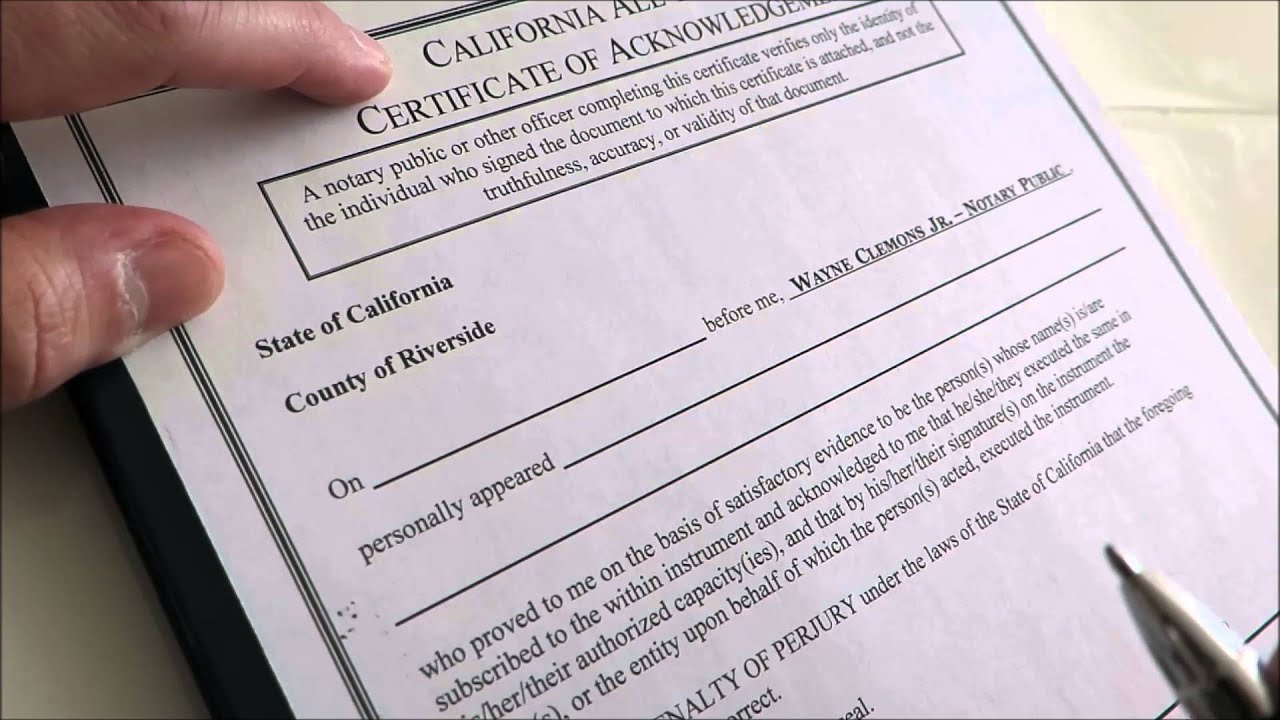
If you’re drafting an estate plan, buying a home, adopting a child or completing another legal or official transaction, you might be tasked with finding a notary to authenticate certain important documents.
Before completing this process, you may have some questions. What is a notary public? How do I find a notary? How much does notarization cost?
Take a deep breath. There are lots of ways to find a notary, and your financial advisor or lawyer may be able to point you in the right direction. Here’s what to know about notaries and notarization.
What Is a Notary?
A notary public is a professional designated by your state who verifies your identity and authenticates your signing of important papers and documents.
Notaries ensure that there is no fraud, forgery or force when it comes to placing your signature on contracts and important forms. They also keep important records in a logbook or journal.
The process of notarization is often required by law for certain legal documents, depending on your state, which may apply to estate-planning papers, powers of attorney, medical proxy documents and other essential forms.
The Definition of Notarization
Notarization is the process of authenticating the signing of documents, ensuring that the papers are legitimate, the signature is real and the signer is mentally and freely able to sign.
“Notarization imparts integrity and trust to signed documents,” says Bill Anderson, vice president of government affairs for the National Notary Association.
In general, there are three different kinds of notarial acts. They include:
- Acknowledgments: Verifies that you have freely signed a document and is typically associated with papers that control ownership of assets, including property transactions, powers of attorney and trusts, according to the National Notary Association.
- Jurats. Requires that the signer affirm the paperwork contains truthful information and typically involves documents associated with criminal or civil justice systems.
- Certified copies. Includes certifying the copying or reproduction of certain important papers.
Typically, a lawyer, real estate agent or another professional with whom you’re working on a contract can help you determine when a document needs to be signed in front of a notary. Or it may not be required but considered best practice to have a notary witness a signing. “A consumer gets a document notarized largely because they’re asked to,” says Pat Kinsel, CEO of digital notary app Notarize.
Where Can I Get a Document Notarized?
To get a document notarized, you’re going to need to find a notary to meet with you in person or online. You can engage the services of a notary in a variety of places and through a variety of platforms.
Consider looking for a notary in these locations:
- Your bank.
- Financial planner’s office.
- Attorney’s office.
- Accountant’s office.
- Real estate firm.
- Local post office.
- Package delivery stores.
- Online or via an app such as Notarize.
This is just a start. Notaries work for a range of business and at a range of offices. You may also hire a travel notary, who will come to your location to witness your document signing. You can typically find one online by doing a search and reading reviews.
If you’re working with a law firm or financial advisor, start your search for a notary with that office, says Jennifer Guimond-Quigley, an attorney in Chicago. They may have one on staff or on speed dial. “Start from the inner circle and work your way out from there,” she says.
What Should I Bring When Meeting With a Notary?
Don’t arrive empty-handed when meeting with a notary. Common items to bring with you include:
- Your documents.
- Accepted forms of identification such as a driver’s license or passport.
- A mask if you’re signing in person.
- Payment for the notary.
It’s especially important to ensure that your forms are in their final state before bringing them to the notary. A notary will do a quick scan of your paperwork and may not agree to oversee the signing of a document that looks incomplete. Blank spaces in a document are opportunities for fraud, Anderson says.
How Much Does a Notary Cost?
Notary fees can range from 50 cents to $15, depending on your state, which may set fees by law, according to the National Notary Association.
That said, you may pay more than $15 if you use a mobile notary, who will come to your location to notarize a document and ask for reimbursement on travel expenses. Make sure to discuss costs and fees with a mobile notary before engaging his or her services.
Notarize, an app that allows users to digitally notarize documents and connect with a live notary, charges $25 per document, with other pricing options available to regular costumers such as businesses. Your bank may offer free notary services.
How Do Notarization Services Work During the COVID-19 Pandemic?
If you need to work with a notary during the coronavirus pandemic, take note that there are processes in place that make it safer and allow for social distancing.
You can use an app such as Notarize, which allows the whole process to take place via video call, with documents uploaded and shared online. “It’s an online equivalent to the in-person process,” Kinsel says.
Governors in states such as New York and Pennsylvania have also signed executive orders making remote notarization services more accessible during the COVID-19 pandemic.
A notary may also be able to work with you in person but with social distancing procedures in place, perhaps meeting with you in a park or via a “drive-through notarization,” in which you sign the documents in your car while the notary witnesses and passes any papers through your car window.
Says Guimond-Quigley: “We do plenty of no-contact signings where we can still hear or see the person but are not all crammed into a room together.”











